AAPS Begins Superintendent Search
Ann Arbor Public Schools board of education study session (April 17, 2013) Editor’s note: Since this study session, the board has held an additional study session and a regular meeting, both on April 24. The Chronicle anticipates offering coverage of those meetings as well.
The board is now in the first stages of it has determined to be a “fast track” superintendent search. That’s because Ann Arbor Public Schools superintendent Patricia Green has turned in her resignation, after a little less than two years on the job. Her resignation takes effect in mid-July. In a brief letter to AAPS staff and families in the school system, Green said she intends to retire after 43 years in the profession. [.pdf of Green's letter]
The bulk of the board’s April 17 study session was spent discussing the first steps of a superintendent search. Led by board president Deb Mexicotte, the trustees discussed topics ranging from retaining a search firm, determining the superintendent profile, creating the search timeline, gathering community input, and naming an interim superintendent.
Also at the study session, Mexicotte also put out another call for trustees to indicate their interests for standing committee membership, as well as interest in chairing a committee. Appointments were to be made by the next regular meeting, which took place on April 24.
The dates and locations of the AAPS community budget forums were also announced. At the forums, the administration will review the budget for the 2013-14 school year.
The board also heard public commentary regarding potential budget cuts and the superintendent search.
Superintendent Search: Background
Green began her tenure on July 1, 2011 with a five-year contract and a starting salary of $245,000. According to AAPS spokeswoman Liz Margolis, a voluntary salary reduction that Green had recently offered has not yet been implemented. Under the terms of her contract, 90 days notice was required, which Green gave in her resignation letter to AAPS board president Deb Mexicotte on April 10.
Green’s resignation comes as the district was facing $17-$20 million of cuts for next year’s budget. That projected deficit has recently been reduced, but still remains around $9 million.
This is the second recent resignation by a top AAPS administrator. Robert Allen, the district’s deputy superintendent for operations, resigned earlier this year. His last day was March 22. Allen had served as interim superintendent in 2010-11 following the departure of former superintendent Todd Roberts. Allen left to take a job at the North Carolina School of Science and Mathematics, which Roberts leads.
Superintendent Search: Search Firm
At the study session, Mexicotte reported she had already contacted Ray and Associates, the search firm retained for the previous superintendent search. Ray and Associates said they would allow AAPS to invoke the two-year guarantee. If AAPS were to engage the firm again, then only incidentals – such as travel expenses – would need to be paid. That is, no fee would be charged for the search itself.
According to Amy Osinski, executive assistant to the board of education, $29,919 was spent for the search that led to Green’s hire, $14,000 of which was the fee charged by Ray and Associates. Incidentals amounted to $15,919.
Trustee Simone Lightfoot asked if a similar guarantee would be in the contract if Ray and Associates were asked to conduct the current search. Mexicotte replied that she wasn’t sure the district wouldn’t get a similar guarantee – because the district has been a “very good reference for them.”
Lightfoot said she wanted to “debrief” before even discussing if the board would hire Ray and Associates. While she liked the fact that there would be no search fee, she felt it was out of sequence – that trustees needed first to discuss if they were even going to engage a search firm.
Mexicotte said she believed Ray and Associates were “helpful” and she “felt positive” about the board’s previous interactions with the firm. Vice president Christine Stead agreed, and said the firm provided a “nice, structured methodology.”
Trustee Glenn Nelson suppported taking advantage of Ray and Associate’s guarantee. That way, he maintained, the entire front end of “searching for a search firm” wouldn’t have to be done. If the board had to search for a search firm, the board would face a longer term of uncertainty.
Mexicotte confirmed that Ray and Associates could start immediately and could have all applications and resumes forwarded to the board by the first week of June. With that schedule in mind, candidates would be vetted and interviews held, with the idea of having a new superintendent named by the end of July.
One of the benefits of selecting Ray and Associates, said Mexicotte, was that the firm agreed that they knew the AAPS community and could interview the trustees over the phone rather than come to Ann Arbor to interview.
Mexicotte clarified that Ray and Associates could conduct the search in whatever way the trustees chose. They could help with the vetting of internal and external candidates, as well as assisting in getting community input.
Lightfoot said that while “fee-free does matter,” she was not as wedded to Ray and Associates because she was not wedded to a national search. She would prefer to look internally. She also clarified that the district was not legally required to use a search firm in the same way a district is required to have a superintendent.
Trustee Susan Baskett said that while some of the people with Ray and Associates “rubbed her the wrong way,” she didn’t want the community to spend more money or have the trustees do more upfront work to find a search firm. Baskett, too, said she would prefer first to look internally.
Outcome: The board voted to use Ray and Associates as the search firm.
Superintendent Search: Timeline
The trustees spent a significant time talking over the timeline for the search. Mexicotte asserted that the timeline was the first piece that needed to be determined – that it determined everything else. If trustees wanted to move quickly, Mexicotte maintained, they could have a superintendent named by mid-July, in place for fall of 2013. Or, if they wanted to “go out slow,” Mexicotte said, they could decide to go with a long-term interim and not begin the search until November, with hire possibly in January 2014.
The trustees coalesced around a fast search. Trustee Irene Patalan said she was willing to work hard to get a superintendent in place by the fall, recognizing that “the community would appreciate that.” Trustee Andy Thomas blanched at the idea of waiting until November to start a serious search. But he also noted that he didn’t want to do a hasty search that omitted a number of other potential candidates just because of the timing. If the district could have a candidate in place by October, or even December, he “could live with that.” Nelson agreed, and said it would be good for the district to settle on a new leader by early summer, even if the candidate couldn’t start until Jan. 1, 2014.
Baskett said Sept. 1 was not soon enough. She maintained they needed to have someone in place before the rest of the staff started the new school year at the end of August. She also acknowledged that their immediate focus was on the budget, and that the spring and summer were her personal busy season. Mexicotte said the point was well taken that if the search “was fast and now, it’s an additional burden for us all.”
While Stead said she would prefer a fast search, she recognized that right now, the bulk of the work the board was doing currently was focused on the budget gap. So she wanted to keep the two items – budget and superintendent search – separate as much as possible. Baskett echoed the concern about the budget not forgetting about the budget.
Stead was also concerned that if the search was conducted over the summer, it would be more difficult to get the kind of community input they wanted. She raised the point that if a slower search was conducted, an interim superintendent “could get used to the role” and demonstrate his or her capability for the role.
Thomas asked if there was a “sweet spot” for when superintendent candidates were generally out looking for jobs. Mexicotte replied that according to Ray and Associates, there was a cycle for hiring. Right now was good, and six months from now is good. A candidate starting in October would be unusual, Mexicotte said. She also noted that if trustees conducted a search and were not happy with the candidates who were available, the board always “has the prerogative to go out later with the search.”
If they went fast, Stead said, trustees knew the steps. They could identify the desired candidate characteristics and send a survey out to themselves and the community by the end of April. Baskett said that because trustees have done this before, some parts of the process could be eliminated – like one-on-one interviews the search firm had previously conducted with each trustee.
While it was “intense work right away,” Nelson said search materials could be sent out by the end of April. May would be a budget-heavy month, with not a lot of time required for the superintendent search [because the search firm would be collecting candidates], then as the budget winds down, trustees would start working on the search again, Nelson said. With that schedule, Nelson felt it was a workable timeline. Mexicotte agreed.
Baskett asked how soon a search could get started. According to Mexicotte, Ray and Associates, based in Iowa, were ready to begin the very next day. The sticking point, however, was the profile the trustees needed to provide. A salary range needs to be identified as a part of that profile.
Outcome: The board voted to approve a fast-track search, with the goal of having a superintendent vetted and hired by Sept. 1, 2013.
Superintendent Search: Profile
Mexicotte said that “linchpin” of launching the search was creating the superintendent profile – the bulleted list of needed characteristics. She said trustees could work on the profile that evening at the study session or they could meet at another time to figure it out.
Thomas did not want to make the criteria too fine before advertising the position. What would be advertised, he said, is the district, the reputation of the schools, the strategic plan, and all the positive things trustees believe in. That alone, Thomas maintained, will attract a wide variety of candidates. Then, as applications come in, they can sharpen their criteria.
Stead outlined a couple of criteria that were important to her. She said it was important that trustees were clear with incoming candidates about the “donor district” status of AAPS. The district has been cutting its budget for the past 19 years. While she was okay with setting a salary range, she did not want to set a target salary as a single number. She would like to take a different approach to salary than the one trustees used with Green.
Nelson said trustees should aim for completing the profile by the end of the following week. The trustees decided they would meet on Wednesday, April 24, for a study session before the regular meeting that evening.
Outcome: The board voted to meet before to the regular meeting on April 24 to finish developing the superintendent profile.
Superintendent Search: Community Input
Mexicotte asked the trustees how they wanted to gather community input. She said they could gather input after they have opened the search or they could gather it before. Her preference was to have the community input before they begin looking at resumés, but not necessarily before they “cast their net.” The characteristics they would be looking for were “very broad,” and the community has already begun making their interests known to the trustees.
Baskett said they needed input before posting the job, to head off any kind of conflict. Lightfoot agreed, saying that some of the qualities they had wanted before may have changed. She encouraged the public to informally weigh in on annarbor.com, and then the trustees would craft their profile. She said if trustees put a profile out, then ask for community input, it “doesn’t sound as if we’re taking their input into account.”
Thomas said he thinks there has been a shift in community opinion over the past two years, so trustees need to make sure what they were looking for is consistent with community expectations. But he did think that getting community input needed to precede posting the position.
In contrast, Nelson said he didn’t perceive any marked change in community feeling over the past two years. He noted that trustees were already getting input, indicating he didn’t think the board would need to ask for it.
To get community input on the superintendent search, Nelson suggested using the same dialogue format that the board had been using for community input on the budget. That way trustees could respond to questions, comments, and concerns. He suggested scheduling two or three more dialogues specifically centered around the superintendent search. Patalan liked the idea of holding community dialogues, saying that annarbor.com is not a place where she gets her information.
Stead pointed out that for the district’s last superintendent search, a survey was sent to community members to get a list of criteria for a superintendent. At the most, 345 people responded. She said they went through a “fairly lengthy process to get folks to engage.” Lightfoot cautioned against assuming that because not a lot of people participated before, the trustees should not have to ask for community input.
Outcome: The board will host several community dialogues to gather community input.
Superintendent Search: Internal Candidates
Stead said trustees would still need to go through the exercise of identifying internal candidates. Mexicotte emphasized that a national search does not preclude internal candidates meeting the criteria. If you cast a wide net, she said, you can still catch the near fish.
Baskett recognized that while all of the trustees have probably received emails about all the wonderful candidates within the district, it’s important that there are names and that those candidates want the job.
During public commentary, Letitia Kunselman urged the board to look for an internal superintendent candidate before searching externally. She said there was an enormous amount of talent within the district.
Superintendent Search: Interim
After the trustees decided they wanted to pursue a fast track search, they spent time talking over the process of selecting an interim superintendent.
Mexicotte noted that because trustees had used a relatively short time frame for the previous superintendent search, they appointed an interim [Robert Allen] who indicated he was not interested in the permanent position. If they needed a longer-term interim, Mexicotte said, they would look at it a bit differently.
Mexicotte asked how they should identify interim candidates. Previously, the outgoing superintendent Todd Roberts had recommended Allen without the board asking him to make a recommendation. She said that they could ask for a recommendation from Green for an interim.
Nelson said that Mexicotte, as president, could use her judgment with the administration’s cabinet members and with the superintendent to get a sense which people would be willing to serve. He said he did have some apprehension about settling this too quickly – because the co-existence of a superintendent and a named interim could be a “bad dynamic or at least an uncomfortable one.”
While Thomas said he would like a recommendation from Green, he would not limit it to just that. He asked that board members also put forward names of individuals from the community. Baskett agreed, saying, “Good ideas can come from anywhere.” Lightfoot said the onus should be on the person who brings forward a name to make sure that person would be interested in the job. If a trustee brings forward a name, that trustee must contact that person to determine interest, she said.
Stead said that she would find it helpful if Ray and Associates were involved with coming up with some evaluation criteria the trustees can use to determine the interim – especially because trustees could wind up with a considerable number of names to go through. She felt that if Green had worked in the district for five years, Stead could fully support Green’s interim recommendation – but because that wasn’t the case, she would like something more objective.
Mexicotte then summarized what she was hearing from the trustees: they wanted Mexicotte to speak to Green to get a recommendation on an interim; Mexciotte will talk to cabinet members to ascertain their interest; she will collect names from trustees as suggestions for an internal candidate; and she will be asking Ray and Associates if they have any insight or a process to aid trustees in their evaluation of interim candidates.
Mexicotte then floated the topic of a timeframe for interim suggestions, and how to deal with the question of a potential interim’s interest in the permanent job.
Patalan and Nelson both said they would be in favor of an interim who was not interested in the job. Nelson maintained more candidates could be attracted if the interim was not also interested in the permanent position.
Thomas, however, said he wasn’t quite as ready to eliminate the possibility of an interim being a candidate for the permanent position. He also did not think candidates should come solely from the cabinet. Baskett said she felt that the possibility should be left open. The interim must be given the option to try it out, she said. Lightfoot was in agreement with that idea.
Nelson said that he was not comfortable having a public discussion of cabinet members as possible candidates. Stead said she would not like to “get a name without strong support.” That highlighted a need for criteria. Mexicotte said if trustees were going to establish criteria, then they could talk about who fits those criteria rather than having a discussion about the cabinet generally.
Stead argued for a structured vetting process for the interim – because it could be “one of the most important decisions we make.” Trustees need to address the budget gap, they still have vacant leadership positions, they still need someone to advocate for the district, and they need someone to work on the long-term vision of the district. While she would like a short-term interim, it might not necessarily end up that way, Stead allowed. For that reason, Stead said, she wanted really to understand the background of the interim. Lightfoot agreed.
Mexicotte said she was “kind of dismayed” that trustees were so invested in what she considers a short-term interim issue. While she recognized there are important issues that need to be addressed, if the timeline the trustees outlined earlier holds true, they would be looking at an interim serving for only a short period of time. And if it turns out they will need an interim for a longer period, trustees can have another conversation.
Mexicotte preferred that trustees look internally for an interim, and that they take the recommendation of the superintendent under strong advisement. If no one was willing to do the short-term assignment, then they could look externally. She didn’t see the interim as more than a “strong and informed caretaker for the short term.” It was a bit of complication, Mexicotte said, that the board didn’t need to delve into right then. Thomas and Nelson were persuaded by her argument.
Stead, Lightfoot, and Baskett disagreed. Stead felt the position warranted some vetting, given the responsibilities that a longer-term interim might need to take on. Lightfoot said she didn’t want to have repeat the conversation if trustees decide they needed the interim to serve for a longer period. She was fine with any additional vetting and additional meetings that would need to take place in order to do so. Baskett said she would volunteer her time to have the deeper conversation to find the district’s caretaker.
Outcome: The board voted to work with the superintendent to consider internal interim candidates to bring to the board within a month. They will be ideally looking for a short-term interim. The interim candidate will be able to apply for the permanent position.
Superintendent Search: Debriefing
Lightfoot asked for an executive (closed) session debriefing.
She wanted to talk about “what happened … who did what, when, and how can we do things better before we move forward.” She asked if a closed session to talk over Green’s resignation would be allowed under the ‘personnel’ clause of the Open Meetings Act. David Comsa, deputy superintendent for human resources and general counsel, clarified that a closed session under the personnel clause could be held only if “the person you are talking about requests a conversation.”
Lightfoot wanted to have the conversation to talk over “what the heck happened,” and wondered if no one else felt a need to have a discussion about Green’s departure.
Mexicotte reiterated that the rules of closed sessions under the Open Meetings Act mean that such a conversation would need to happen in public. She asked when that discussion would be most helpful to the board. She said that maybe sooner rather than later would be better – because that way the trustees could express their concerns to the community.
Mexicotte also pointed out that opportunities always existed for the trustees to ask questions of the superintendent or the administration one-on-one. As it stands now, Mexicotte said, the superintendent has made a public statement – and if the board wants to talk amongst itself, that can be done at anytime it chooses.
In response to Lightfoot’s request, Nelson said that rather than “talking about talking about it,” he would want to talk about it. Lightfoot said she wasn’t ready to have the conversation that evening but would like for the board to make time for it.
Stead agreed that a discussion reflecting back would be a good idea. Green’s announcement was a “major event for our organization,” and Stead supported the notion of reflecting on the past couple of years.
Baskett ventured that it might be more productive to have sidebars with her colleagues. If they had a public conversation, she said, it would most likely “impede progress and the mood moving forward.” And the board still needs to move forward, Baskett added.
Lightfoot asked how trustees would let the public know they’d had those conversations and has addressed the community’s concerns – if they were only sidebar conversations. If the board was amenable to sidebars, however, she said that was fine.
To gauge the feeling of the trustees, Mexicotte asked if a debriefing of what they might have done better or could have done differently was a conversation the board wanted to have as a group.
The trustees decided that sidebars were enough. Patalan said that for whatever reason, a superintendent can resign. And it was the trustees’ job to go forward, she said. Thomas contended that a public discussion “has great potential for being very contentious and potentially destructive to our effort to move forward.” Nelson said that it was his objective to get a superintendent profile completed over the next week, and if this kind of conversation had a bearing on the profile process, then he wanted to have it done. Stead said the search itself was a priority, and she would be fine with limiting the discussion to sidebars.
Lightfoot again expressed her concern that the public would not know what the trustees had talked about. But because the rest of the trustees had reached an apparent consensus on sidebar conversation, Lightfoot agreed.
Outcome: The board agreed to having sidebar conversations about what they could do differently moving forward.
2013-14 Budget: Forums
Mexicotte announced the schedule for the AAPS community budget forums to be held by the administration. The forums will be held Thursday, May 2, 2013 at Huron High School and Tuesday, May 7, 2013 at Pioneer High School. Both forums will be held from 7-8:30 p.m.
Lightfoot asked when the ideas from the public will enter into their conversation about the budget. Green responded that while the administration has been asked to bring forward expenditures, it was the board who decided what to do with those ideas. Mexicotte said that it will be part of an organic conversation as the trustees discuss the budget.
Green said there were “no good cuts,” and there was nothing the administration wants to cut. She recognized that it will pit program against program, group against group. And the board will wrestle with the same kind of decisions the administration has faced.
Concerned that the community’s input has to be “hashed out at the table” instead of being included in the administration’s recommendation, Lightfoot said the administration should include ideas from the community. Green countered, saying the administration “can’t develop a budget in a day.” The last community dialogue meeting was to be held on April 20, just five days before district director of finance Nancy Hoover was to present the budget recommendations.
The community dialogue meetings so far, Nelson said, will help trustees with the principles and vision that they should use to guide their decision-making process. He hears that people are sick and tired of cuts. They have collected “scores of names” from people who are volunteering to work on increasing revenue to the district.
2013-14 Budget: Public Commentary
Parent Erica Gordon spoke about her own family’s experience with alternative education, with one child at the Roberto Clemente Student Development Center and another at Community High School.
She said the budget cuts seem so limited, and she asked if there could be a fundraising campaign to keep cuts from impacting students. She contended that the community would be willing to raise money to keep AAPS “exceptional and accessible” for all.
Student Katie Hook addressed possible cuts to the athletic budget by arguing that participating in sports was instrumental in building better body images for young women. She also mentioned that she and another student was working on a proposal to bring a Junior Reserve Officer Training Corps (JROTC) program to AAPS. JROTC, she said, would be an asset to the district.
Committee Membership
As a brief part of the study session discussion, Mexicotte asked the trustees to let her know their preferences for committee membership as soon as possible.
At the April 10, 2013 meeting, the board had voted to eliminate the committee-of-the-whole structure and return to planning and performance standing committees, along with a governance committee. Mexicotte said she planned to finalize committee appointments and chairs by the next week.
An executive committee [made up of standing committee chairs and the board president] will meet, to set the agenda moving forward. At that point, Mexicotte noted, the executive committee will make sure to add a conversation about Roberto Clemente Student Development Center to the agenda.
Present: President Deb Mexicotte, vice president Christine Stead, treasurer Glenn Nelson, secretary Andy Thomas, and trustees Susan Baskett, Simone Lightfoot, and Irene Patalan.
Next regular meeting: Wednesday, April 24, 2013, 7 p.m. at the fourth-floor conference room of the downtown Ann Arbor District Library, 343 S. Fifth Ave.
The Chronicle relies in part on regular voluntary subscriptions to support our coverage of public bodies like the Ann Arbor Public Schools board of education. Check out this link for details: Subscribe to The Chronicle. And if you’re already supporting us, please encourage your friends, neighbors and colleagues to help support The Chronicle, too!




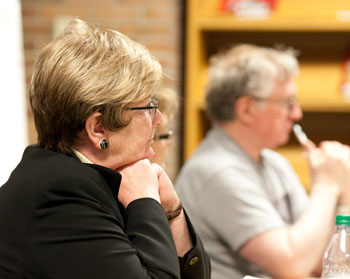
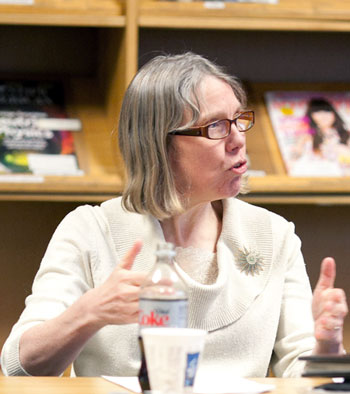
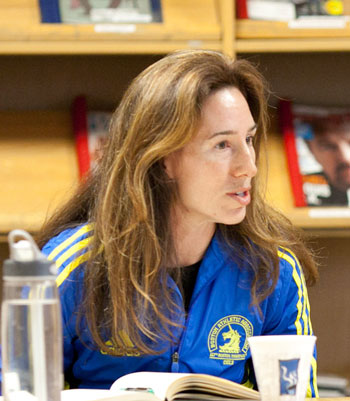
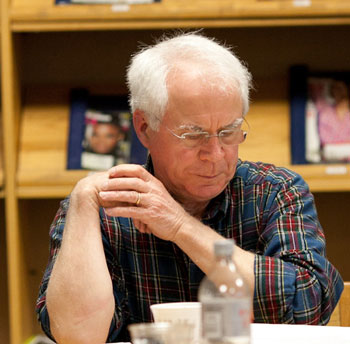

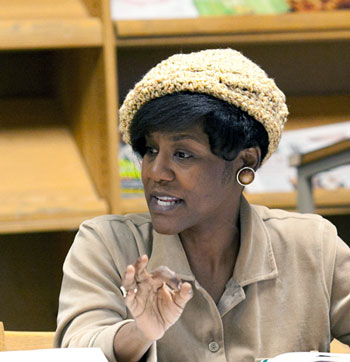


Tangential comment: it may be that the popular respelling of linchpin as lynchpin is inevitable, but I feel compelled to note that the former is the original. The OED, I believe, doesn’t even include lynchpin as a variant spelling.
Rod,
I’ve changed the spelling. For more on linchpin versus lynchpin, see [link]
Thanks for indulging a fussbudget, Dave.